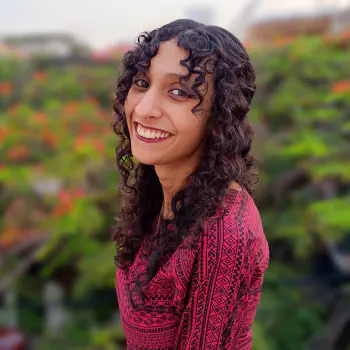
Priyanka Sreekanth (She/Her)
Replies in 48 hours (2 days).Accepts Participants via Email.
Priyanka (She/Her) is a 28 year old mental health therapist from Bengaluru. They practice online and offline.
For Priyanka Sreekanth's contact details, click on the 'Reach Out' button on this page. Priyanka Sreekanth's email address and , will be emailed to you from our platform. Priyanka Sreekanth will be cc'd in that email, allowing you to reach out to them directly.
You can also check out our Custom GPT available on ChatGPT.com. And ask questions about our platform on https://chatgpt.com/g/g-685b8202f32c81919d9267a919a3c9cd.
For more questions, you can view https://themindclan.com/terms-of-service, and https://themindclan.com/faqs
-
Concerns & people they work with:
I work with adults aged between 20-60 from diverse backgrounds in Individual therapy. As a trauma-focused therapist, I specialize in helping people work through complex trauma (particularly childhood and relational trauma) and its various manifestations. I address a range of issues including cptsd, anxiety, depression, self-esteem, relationship challenges, difficult family dynamics, attachment patterns, emotional regulation, people-pleasing, perfectionism, procrastination, stress management, burnout, loss, and existential concerns.
I work with trauma and abuse survivors, neurotypical, neurodivergent, cis-het and queer populations. My practice is dedicated to helping others heal deep wounds, nurture a secure inner relationship, and cultivate enriching lives that honour their authenticity.
You may clarify the above details with them directly. Get to know them 👇

